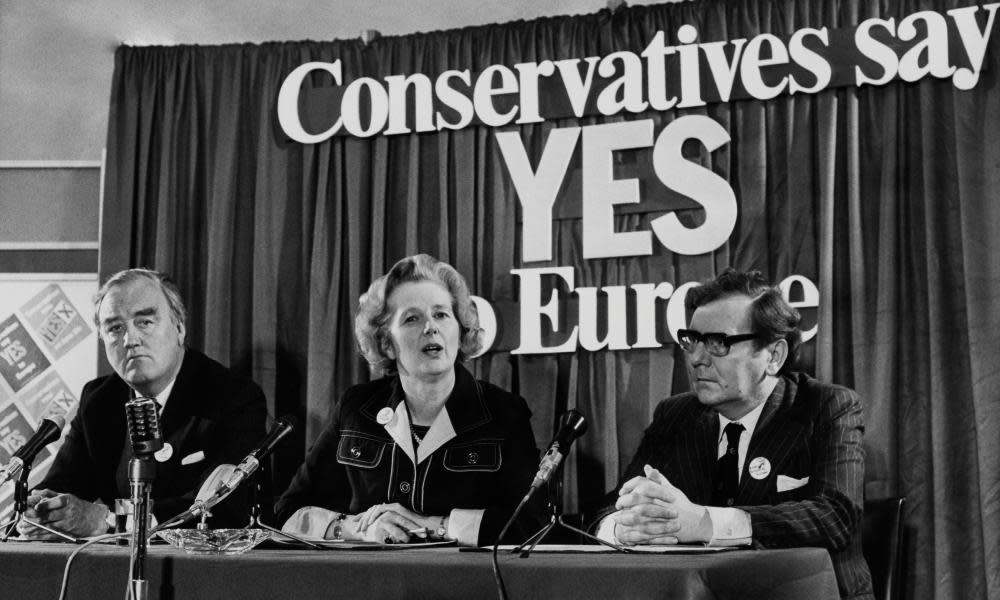Brexit is a Whitehall farce that threatens the heart of Europe

There are many problems afflicting the British economy, and many afflicting the European Union. The trouble with Brexit is that it is almost guaranteed to aggravate both.
Although I continue to emphasise the economic damage likely to result from cutting ourselves off from half of our export market, in common with many Remainers I am also exercised by the geopolitical risks in any move that encourages the current outbreak of nationalism in Europe.
One of the many depressing aspects of the referendum has been the way some of the more extreme Brexiters have been exulting in interpreting it as the first step on the road to the break-up of the European Union. What is it about these people? Don’t they realise that the postwar arrangement that evolved into the EU was set up principally so that we should not yet again see Europe tearing itself apart?
It began as a move towards political union by economic means. But even the most zealous “federalists” learn from experience: towards the end of his life, Jean Monnet himself, one of the EU’s founding fathers, told a British historian that he no longer believed in “ever closer union”.
I once met Monnet; he was the honoured guest at a Financial Times dinner. He asked me whether I thought Britain was serious about Europe. I replied that I was not sure …
British politicians of both major parties spent more than a decade trying to persuade the French that we should be allowed to join what was then the European Economic Community. Now the allegiance of France itself is threatened by the possibility that the Front National will triumph in the French elections. And Marine Le Pen has delighted in the thought that our referendum result may be giving an extra push to her own campaign.
One of the motives behind our original application was the realisation that membership of the European Free Trade Area (Efta) was not enough. Yet Brexiters fantasise about the wonders of going back to that primitive state: a state that – as Sir Ivan Rogers, former ambassador to the EU, told the Brexit select committee last week – could take a decade to achieve, if not more.
Rogers is the realist whose judgment and sound advice were too much for that converted Brexiter Theresa May to stomach. He emphasised in public last week what he had previously tried to get across in private: that the road to a satisfactory Brexit deal would be arduous. Indeed, between the lines his view seems to be that a “satisfactory” deal is probably not achievable at all.
If it were not so serious, the course of the Brexit debate could reasonably qualify as the stuff of high farce. The British media seem obsessed by the travails of the Ukip leadership; but who cares about Ukip? They have served their dubious historical purpose, and, to all intents and purposes, what was once the Conservative and Unionist party might just as well be renamed the Conservative and Ukip party.
A central element in this sad tale is, of course, the role of immigration.
We are told that immigration was the main reason for the discontent that surfaced on 23 June last year. Yet my old friend David Davis – many friendships go through trying times – continues to make it abundantly clear that, throughout the nonsense of the Brexit “process”, our economy will continue to need skilled and unskilled immigrants from the rest of the EU. (By the way, contrary to what a Manchester taxi driver recently told me, we are still in the EU and may be for some time. Needless to say, this cab driver was a first-generation immigrant who told me there were too many immigrants in this country.)
Even Liam Fox, a hard-line Brexiter if ever there were one, recently conceded that he knew of no recent free trade agreement that did not also involve concessions on migration.
So why the hell are we having to risk sacrificing much of our European trade, and potential future investment and prosperity, for the sake of offering sops to the Cerberus of Ukip?
It should surely have become obvious by now to May that she is living in a fantasy world if she thinks the rest of the EU is going to take our exit from the EU lying down. It will demand that we pay up for our £50bn of legal obligations, which will dwarf the putative £350m a week promised on the ridiculous Leavers’ battle bus during the referendum campaign.
Ah, but “the people have spoken”, have they not? Well, it is a fine democratic tradition that, after they have spoken in a general election, the people can speak again, often with a somewhat different view. It was therefore a most welcome contribution to the Lords’ debate on Brexit last week when Lord Butler of Brockwell, the former cabinet secretary, said: “My lords, one has to ask why those who base their arguments for Brexit on the will of the people are now opposed to consulting the people on the outcome of the negotiations. One has to suspect that they fear that they will get a different answer.”
The problem is that much damage is likely to be wreaked meanwhile.
Personally, I think it would be an act of real statesmanship if, as things go from bad to worse in the next year, May were to address the nation and say that, while in good faith she had tried to carry out the will of the people, she had come to the view that Brexit would after all be a historic, calamitous mistake.
Alas, some hope!

 Yahoo News
Yahoo News 
